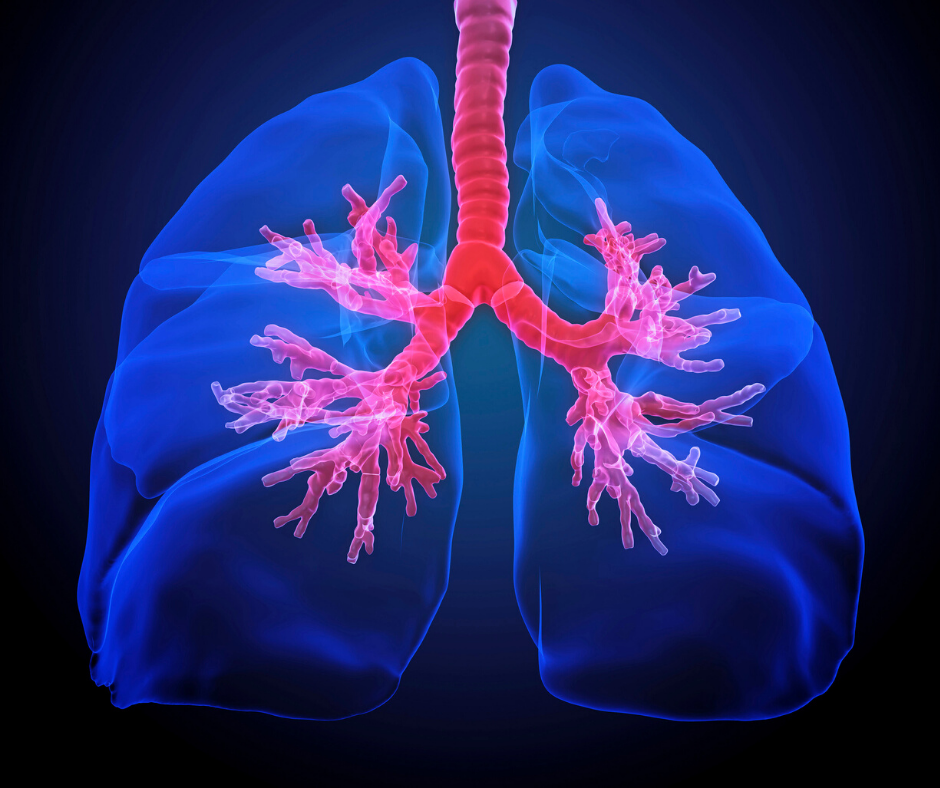Cytokine storms are dramatic over-reactions to any type of immune insult to the body. In the case of this pandemic, the over-reaction occurs in the lungs. (Hence the official name of COVID 19 is SARS-COV 2 and SARS stands for “sudden acute respiratory syndrome.”) It is the damage wreaked by cytokine storms that is deadly.
While in most cases the virus is asymptomatic, meaning no symptoms at all, and for many people just mild, hundreds of thousands have died from it.
What is it that makes the difference between being able to fight off the virus or succumbing to it?
What many patients are dying from is respiratory failure, or related organ failure, resulting from the “cytokine storm” that is part of a sequence of events that starts with contracting the virus, moves into significant inflammation and develops into the overreaction, or cytokine storm, in the lungs. The lungs clog up with mucus and are therefore unable to transport oxygen to the rest of the body.
More specifically, once the virus enters the body, it attaches to the cells that make up the lining of the lungs and then begins to replicate or grow. The body then releases chemical messengers called cytokines, which can develop into an exaggerated response, depending on the overall “terrain” of the individual.
What I mean by terrain is the overall immune health and nutritional status of the host. The stronger the “host,” meaning each individual, the better they can respond appropriately and effectively to the virus and fend it off.
Some of the factors that play a role in creating a healthy terrain include:
- adequate sleep
- regular exercise
- good stress management skills
- healthy nutrient-dense diet
Some of the key nutrients that play a role in decreasing this cytokine storm response include vitamin C, zinc, N-acetyl Cysteine, the B vitamins, and many others.
When the host is weak, whether due to age, a compromised immune system, from poor lifestyle choices, or from overwork (I worry about our healthcare workers), the virus is more likely to take hold, and the chances of this overreactive immune response are higher. Many people, such as those with diabetes, heart disease, and arthritis, have high baseline levels of inflammation to start with, and they are at higher risk.
As the various immune cells flood into the lungs, they cause uncontrolled inflammation. The inflammation then creates oxidative stress (compounded by a lack of anti-oxidant vitamins), which damages the membrane where gas is exchanged in the lungs. This combination prevents the body‘s ability to flush mucus out of the lungs and consequently blocks the transport of oxygen to the rest of the tissues. Without oxygen, critical organs eventually shut down, causing death.
So why do people get this exaggerated response and others do not?
One of the key factors is the presence of anti-oxidant nutrients that neutralize oxidative stress, reduce inflammation, and prevent damage to the membranes that line the bronchial in the lungs.
Preventive Nutrients
This is why vitamin C, a powerful antioxidant, has consistently been the top recommendation of anyone who is familiar with the world of nutritional medicine. In fact, intravenous vitamin C is used in some hospitals as part of treating the coronavirus because it significantly enhances the efficacy of pharmaceutical therapies. As a preventative, vitamin C continues to be the top recommendation by nutritionally enlightened practitioners and remains a very smart strategy.
NAC or N-acetylcysteine, is the building block for glutathione, our master antioxidant. It, too, is being used in hospitals as treatment and is also recommended for prevention. In the hospital settings, NAC is introduced into the lungs of COVID patients using a nebulizer, which thins the mucus that clogs the lungs and allows it to flow and drain out of the lungs. Our clients use oral NAC regularly to not only prevent sinus infections but also boost their glutathione levels and confer antioxidant protection on all of their body systems.
I have been recommending both vitamin C and NAC as primary prevention since the onset of this pandemic. They are perfectly safe whether or not you have an active infection. And of course, increasing your intake of fresh fruits and vegetables also boosts your antioxidant status.
There has been concern about botanicals because their action does mildly increase the response of those cytokines. However, they do so in a balanced way that supports the immune system’s more measured, and therefore, effective response. SO many botanicals have a proven track record when it comes to improved immune response. Please note I say improved and not heightened.
Botanics Which Improve Immune Response
- Echinacea
- Andrographis
- Elderberry
- Astragalus
- Mushrooms: cordyceps, shitake, maitake, Reishi, and many others
Quercetin is notably interesting in relation to this particular virus. It has a unique ability to block the docking of the prong shaped mechanism that the coronavirus uses to attach to our cells. The powerful combination of Quercitin and vitamin C is a particularly helpful approach to managing sinus problems this year since it acts as an anti-histamine as well.
For further recommendations of an immune-boosting program, please see Research-Based Immune Builders. Or watch my free video, Boosting Your Immune System. Get instant access to the video by signing up HERE.
It is my fervent hope that one of the lessons of this pandemic is the increased public awareness about the very real effect that diet has on our health. Perhaps we will be healthier as a nation as a result of mindfully building health with nutrient-dense foods and eliminate the last of those empty calories that can still creep into our diets. Stay tuned for our blog on how to boost your antioxidants from colorful fruits, vegetables, herbs, and spices. We will also talk about the sources for sulfur-rich vegetables that build our glutathione levels.
BeWell and Stay Safe!






Add Comment